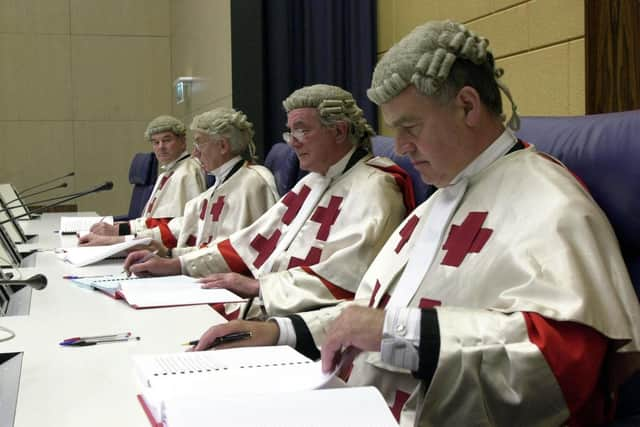What is the Not Proven verdict in Scotland? Why is there a campaign to get rid of it?
Why does Scotland have a Not Proven verdict?
From the late 1700’s, the task of a jury was to decide whether a case could be proven, or not proven.
It was in the early 1720s, that ‘not guilty’ was added by controversial defence lawyer Robert Dundas, who believed the jury should have the right to declare an acquittal regardless of the level of proof.


Advertisement
Hide AdAdvertisement
Hide AdHe claimed that it was their ‘ancient right’ to view the case as a whole and make their decision accordingly whether they felt someone was legally ‘guilty’ or not.
This led to a three verdict system. Over time, ‘proven’ became ‘guilty’, leaving Scotland with guilty, not guilty and not proven.
Walter Scott called it the ‘bastard verdict’.
Are there problems with the verdict?
A mock jury study, published by the Scottish Government in 2019, found that even when verdicts of not proven were returned, the meaning or consequence of the verdict was not often understood.
The study found: “Where the not proven verdict was discussed, there was inconsistency in understanding of its meaning and confusion over its effect.
"In particular, jurors were not always clear how it differed (if at all) from a not guilty verdict.
"More jurors thought that a verdict of not proven should be returned when jurors need to compromise to reach a verdict than believed a not guilty verdict should be used in that situation. "
Why is there a campaign to get rid of it?
The campaign has been launched by Rape Crisis Scotland working with Miss M, a woman who took her rapist to civil court.
On their website, RCS list their reasons for the campaign, saying: “The not proven verdict is used disproportionately in rape cases. In 2016/17, only 39% of rape and attempted rape cases resulted in convictions, the lowest rate for any type of crime.
Advertisement
Hide AdAdvertisement
Hide Ad"Nearly 30% of acquittals were not proven, compared with 17% for all crimes and offences.
“The not proven verdict has the exact same impact as a not guilty verdict, and can be just as distressing for the complainer as a not guilty verdict.
“There is some evidence that juries can be reluctant to convict in rape cases, and that preconceived notions of how someone should react to rape may impact on their decision making.
"There are real worries that the existence of the not proven verdict gives juries in rape trials an easy out and contributes to guilty people walking free.”
Are there any arguments to keep it?
There is not a lot of support for keeping a three verdict system in Scotland, however many in the legal profession believe it is not the ‘not proven’ verdict that should be removed.
In an 2021 interview with The Scotsman, Thomas Ross, one of the country's leading criminal defence QCs, explained: “I think most practising lawyers would say that it’s the not guilty verdict that should withdrawn.
"The question a jury is being asked is whether something has been proved beyond reasonable doubt, so that’s the one they should answer.
“It would then be for the judge to declare the defendant guilty or not.”